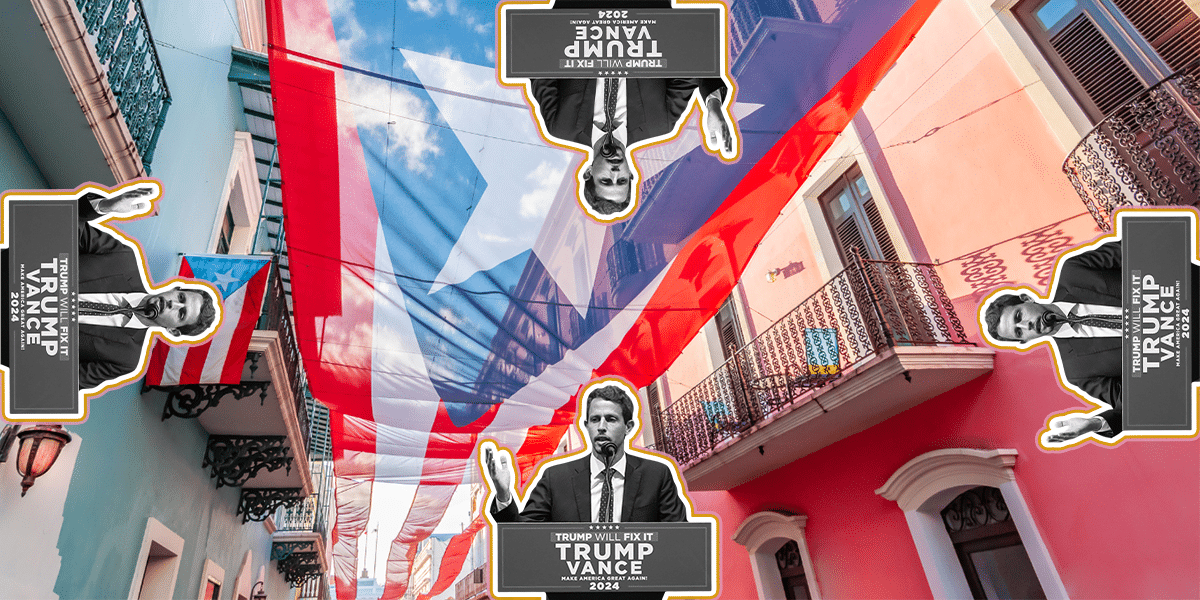We should no longer be shocked by racist, xenophobic comments from someone in former President Donald Trump’s orbit. As a proud Puerto Rican, I appreciated the public outcry after comedian Tony Hinchcliffe’s comments about the archipelago being a “floating island of garbage.” However, most television commentary I see predicts an upswell of support for Vice President Kamala Harris in response. Mainstream journalism is missing important nuances of Latine political thought, including understanding Puerto Rico.
While there is something to be said about energizing a base — and certainly Pennsylvania’s significant Puerto Rican population could play a decisive role in next week’s election — it is not news that Trump’s policies toward Puerto Rico have caused harm and led to mass emigration to the mainland. It is also hardly news that more Latines voted for Trump in 2020 than in 2016.
Consider the following statistics from a 2024 survey of more than 600 Puerto Rican voters from both the island and mainland:
- A large plurality of mainland voters, 42 percent, are most concerned about public safety, crime, and drug trafficking. We know from other data that many with similar priorities vote Republican.
- Forty percent of mainland Puerto Rican voters are mostly concerned with inflation, something for which a lot of voters blame President Joe Biden.
- Democrats can’t always use the overturning of Roe v. Wade to motivate Puerto Rican voters. While most mainland Puerto Ricans do support reproductive rights, 40 percent are either opposed or unsure about the issue.
Furthermore, everyone already knows Trump dislikes Puerto Rico. In 2022, authors Peter Baker and Susan Glass revealed that Trump called the island “dirty” and suggested that we trade it with Denmark for Greenland.
These comments emerged after he left office, but at the time, we saw his treatment of Puerto Rico after Hurricane Maria left almost 3,000 people dead and wrecked the island’s infrastructure. He sat by as Congress delayed suspension of the Jones Act, which would permit more ships to reach people in need with aid. And he restricted financial assistance to the island, blaming corruption.
Anyone who holds Puerto Rican citizens responsible for government corruption ignores history. Puerto Rico has not ruled itself since Columbus encountered the island in 1493. After the United States took power from Spain in 1898, the island’s US-appointed leaders controlled the government for decades. The taxpaying American citizens of Puerto Rico should not be blamed for this history and deserve to receive food, energy, and medical care in a crisis.
Any Puerto Rican who votes Republican – whether in response to the xenophobic fears stoked by his campaign, in favor of restricting abortion, or desiring a smaller government — already knows Trump’s policies are bad for the island. Their votes will not have an addendum that says they don’t support Hinchcliffe’s words.
There are more Puerto Rican voters on the mainland now thanks in part to Trump’s actions. Puerto Ricans are American citizens — though they cannot vote for president unless they move to the mainland – and between three and six percent of Puerto Rico’s population left the island after Hurricane Maria. The swing state of Pennsylvania received many of these new presidential voters.
Some believe that Puerto Ricans will, like Italian Americans, eventually assimilate into the (white) mainstream of American culture. This obviously ignores the fact that a significant number of Puerto Ricans are Black or mixed race and do not benefit from white privilege the way I can.
Because many Puerto Ricans can blend in, we are more likely to forget the trauma of discrimination and see ourselves in our marginalized neighbors. And because of this, we are vulnerable to overlooking xenophobia, or even embracing it, when we cast our ballots.
The first Puerto Rican voter I ever knew was a Republican.
My father wasn’t a MAGA Republican. His ideal president was Ronald Reagan (giving him credit for ending the Cold War), and he thought Trump was a blowhard.
But he still voted for Trump in 2016. My father died five years ago, so I don’t know who he would have supported tomorrow. He would have hated hearing Puerto Rico called a “floating island of garbage” – but he still might have preferred Trump’s economic and public safety vision.
The Puerto Rican family includes both conservatives and liberals. Democrats take our support for granted at their own peril. Let’s look beyond the media headlines and dig into the nuances of the Puerto Rican experience if you really want to understand how we vote.

